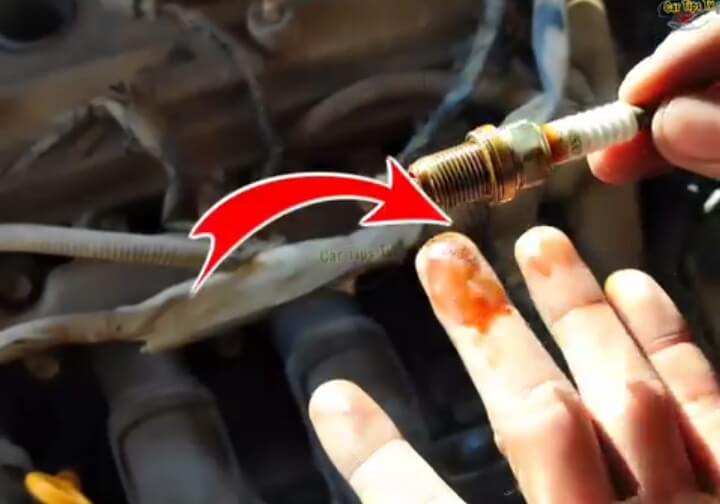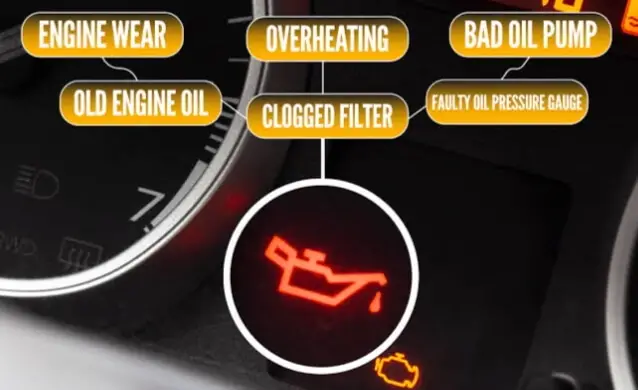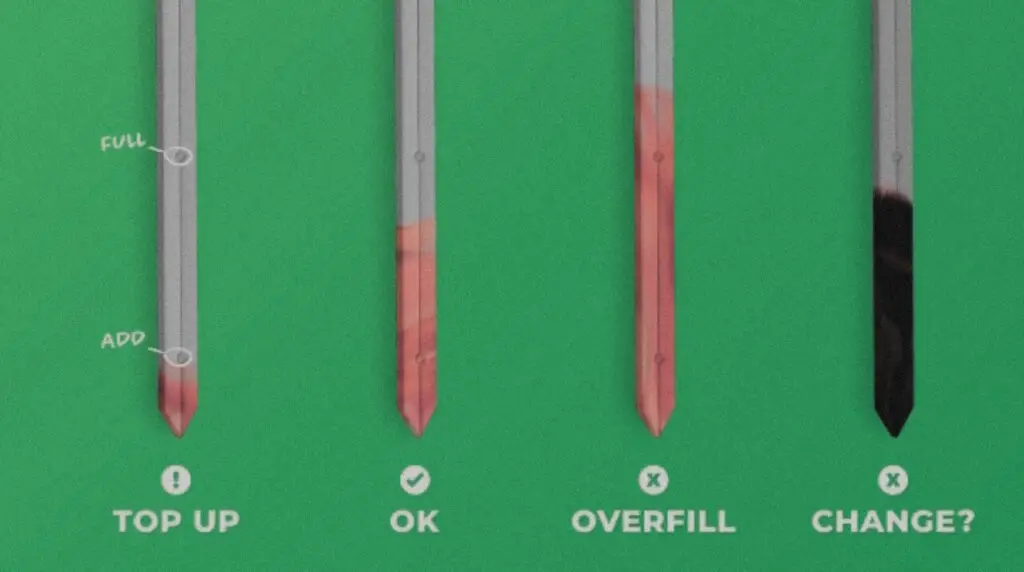As an Amazon Associate, we earn from qualifying purchases. This does not affect the price you pay or the quality of the products you buy. For more information, please read the full affiliate disclosure here.
Mixing different weights of oil, such as 5W20 and 5W30, is generally not recommended. The numbers 5W20 and 5W30 refer to the viscosity or thickness of the oil. The “W” stands for winter, indicating how the oil performs in colder temperatures. The number before the “W” represents the oil’s viscosity at lower temperatures, while the number after the “W” represents the oil’s viscosity at higher temperatures.
While it might be tempting to mix these two oils, it’s important to understand the potential risks and benefits of doing so.
Hence, here at Generator Hacks, we’ll explore the topic in depth and provide you with everything you need to know about mixing 5W-20 and 5W-30 oils in your generator.
Can You Mix 5W-20 and 5W-30 Oils?
Firstly, before diving in deep, let’s answer the question that brought you here: can you mix 5W-20 and 5W-30 oils in your generator? The short answer is yes; you can mix them, but it’s not recommended.
When you mix different viscosities, you may compromise the oil’s overall performance and its ability to protect your engine. The specific characteristics of different oil weights are designed to meet the requirements of specific engines. Mixing them can alter the oil’s ability to flow properly, potentially leading to increased engine wear, reduced lubrication, and decreased fuel efficiency.
Also Read:- Is Generator Oil The Same As Car Oil?
Understanding Oil Viscosity
Viscosity refers to the oil’s thickness or resistance to flow, and it’s typically measured in centistokes (cSt). The lower the viscosity, the thinner the oil and the faster it flows. Conversely, the higher the viscosity, the thicker the oil and the slower it flows.
When you see an oil label with two numbers, such as 5W20 or 5W30, the first number represents the oil’s viscosity at cold temperatures (the “w” stands for winter), and the second number represents its viscosity at normal operating temperatures.
So, based on that, 5W-20 oil will be thinner than 5W-30 oil when the engine is cold but will have similar viscosity when the engine is at normal operating temperature.
Also Read:- Can I Use Car Engine Oil For Generator?
Benefits of Using 5W-20 Oil
Now that we’ve discussed the potential risks of mixing 5W20 and 5W30 oils, let’s take a look at the benefits of using 5W20 oil in your generator.
Firstly, 5W-20 oil is recommended by many generator manufacturers as the optimal oil for their equipment. It has a thinner viscosity at low temperatures, which makes it easier to start the engine in cold weather.
Additionally, it provides better fuel efficiency than thicker oils like 5W-30, which can save you money on gas or diesel over time.
Using 5W-20 oil also reduces engine wear and tear by providing better lubrication to engine parts. This is because the thinner oil can circulate through the engine more quickly, providing lubrication to critical components like the camshaft and bearings.
Benefits of Using 5W-30 Oil
Just like 5W-20 oil, 5W-30 oil also has its benefits. And above all, there are the benefits of using 5W-30 engine oil.
- It helps improve engine protection: 5W-30 oil is thicker than 5W-20 oil, which means it provides better protection against wear and tear on engine parts. This is particularly important for generators that are used in harsh conditions or for extended periods.
- It provides better performance at high temperatures: 5W-30 oil has a higher viscosity at high temperatures than 5W-20 oil. This means it can provide better protection against engine damage and help prevent engine overheating, which can occur when the generator is running for an extended period.
- It’s good in all-season performance: While 5W-20 oil is better suited for colder temperatures, 5W-30 oil is a good all-season oil that can perform well in both cold and hot weather conditions.
- Lastly, availability: 5W-30 oil is widely available and can be found in most auto parts stores or online. This makes it a convenient option for those who need to change their oil quickly or on short notice.
Differences between 5W20 and 5W30
The main difference between 5W20 and 5W30 oils is their viscosity. As I mentioned earlier, viscosity refers to the thickness of the oil and its resistance to flowing.
The first number on the oil’s label (5W20 or 5W30) represents the viscosity of the oil at low temperatures or during cold starts, while the second number represents the viscosity at normal operating temperatures.
In general, 5W-20 oil is thinner than 5W-30 oil. This means that it flows more easily through the engine, providing better fuel efficiency and easier starts in cold temperatures.
However, thinner oil can also break down more quickly and may not provide as much protection against wear and tear on engine parts as thicker oil.
On the other hand, 5W-30 oil is thicker than 5W-20 oil, which means it provides better protection against engine wear and tear. It’s also better suited for high temperatures, as it can maintain its viscosity and provide better engine protection in hot weather conditions. However, the thicker oil may not flow as easily through the engine and may lead to reduced fuel efficiency.
Therefore, when it comes to choosing between 5W-20 and 5W-30 oil, it depends on the specific needs of your generator and the recommendations of the manufacturer.
You must choose an oil that provides adequate protection for your engine and helps it run smoothly, whether that’s a thinner oil like 5W-20 or a thicker oil like 5W-30.
Frequently Asked Questions
Can I mix 5W-20 and 5W-30 oil?
While it’s not recommended to mix oils with different viscosities, such as 5W20 and 5W30, doing so is unlikely to cause significant damage to your generator. However, it’s important to keep in mind that mixing oils can affect the performance of the oil and may not provide the same level of protection as using a single, recommended oil type.
What happens if I accidentally add 5W-30 to my generator that requires 5W-20 oil?
Adding 5W-30 oil to a generator that requires 5W-20 oil is not ideal, but it’s unlikely to cause significant damage to your equipment. However, using a thicker oil than recommended can reduce fuel efficiency and may not provide adequate protection against wear and tear on engine parts.
Can I switch from 5W20 to 5W30 oil in my generator?
Yes, you can switch from 5W20 to 5W30 oil in your generator if the manufacturer recommends it.
What is the best oil type and viscosity for my generator?
The best oil type and viscosity for your generator depend on the specific needs of your equipment and the recommendations of the manufacturer. It’s important to consult your generator’s owner’s manual or speak with a qualified technician to determine the best oil type and viscosity for your specific equipment.
How often should I change the oil in my generator?
The frequency of oil changes in your generator depends on several factors, including the manufacturer’s recommendations, how often the generator is used, and the conditions in which it’s used. In general, it’s recommended to change the oil in your generator every 50–100 hours of use, or at least once every 3–6 months, depending on how well you use it.
Conclusion
While it is possible to mix 5W-20 and 5W-30 oils in your generator, it’s not recommended due to the potential risks of creating an oil that’s too thin or too thick for your engine.
It’s always best to use the oil type recommended by your generator manufacturer for optimal performance and longevity.
By understanding the importance of using the right oil in your generator, you can help ensure that your equipment runs smoothly and lasts for years to come.
Share

